
Marcel Achard was a French playwright and screenwriter whose popular sentimental comedies maintained his position as a highly recognizable name in his country's theatrical and literary circles for five decades. He was elected to the Académie française in 1959.

The Cannes Film Festival, until 2003 called the International Film Festival, is an annual film festival held in Cannes, France, which previews new films of all genres, including documentaries, from all around the world. Founded in 1946, the invitation-only festival is held annually at the Palais des Festivals et des Congrès. The festival was formally accredited by the FIAPF in 1951.
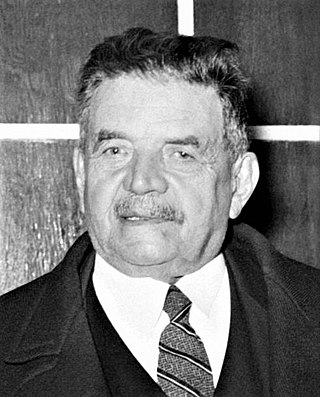
Édouard Marie Herriot was a French Radical politician of the Third Republic who served three times as Prime Minister and twice as President of the Chamber of Deputies. He led the first Cartel des Gauches. Under the Fourth Republic, he served as President of the National Assembly until 1954. A historian by occupation, Herriot was elected to the Académie Française's eighth seat in 1946. He served as Mayor of Lyon for more than 45 years, from 1905 until his death, except for a brief period from 1940 to 1945, when he was exiled to Germany for opposing the Vichy regime.

Georges Duhamel was a French author, born in Paris. Duhamel trained as a doctor, and during World War I was attached to the French Army. In 1920, he published Confession de minuit, the first of a series featuring the anti-hero Salavin. In 1935, he was elected as a member of the Académie française. He was nominated for the Nobel Prize in Literature twenty-seven times. He was also the father of the musicologist and composer Antoine Duhamel.

René Clément was a French film director and screenwriter. He is known for directing the films The Battle of the Rails (1946), Forbidden Games (1952), Gervaise (1956), Purple Noon (1960), and Is Paris Burning (1966). He received numerous accolades including five prizes at the Cannes Film Festival and the Honorary César in 1984.

Emmanuel Carrère is a French author, screenwriter and film director.
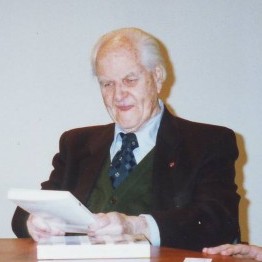
Jean Delannoy was a French actor, film editor, screenwriter and film director.

Konrad Wolf was an East German film director. He was the son of writer, doctor and diplomat Friedrich Wolf, and the younger brother of Stasi spymaster Markus Wolf. "Koni" was his nickname.

Kurt Maetzig was a German film director who had a significant effect on the film industry in East Germany. He was one of the most respected filmmakers of the GDR. After his retirement he lived in Wildkuhl, Mecklenburg, and had three children.
Christian-Jaque was a French filmmaker. From 1954 to 1959, he was married to actress Martine Carol, who starred in several of his films, including Lucrèce Borgia (1953), Madame du Barry (1954), and Nana (1955).
François Nourissier was a French journalist and writer.

Bertrand Bonello is a French film director, screenwriter, producer, composer and actor. His work has been associated with the New French Extremity. He wrote and directed Something Organic (1998), The Pornographer (2001),Tiresia (2003), Cindy: The Doll Is Mine (2005), On War (2008), House of Tolerance (2011), Saint Laurent (2014), Nocturama (2016), Zombi Child (2019), Coma (2022), and The Beast (2023). He also starred in Portrait of the Artist (2015), and Titane (2021). He was nominated for the César Award for Best Director for Saint Laurent, and was named a Knight of the Order of Arts and Letters in France in 2015.
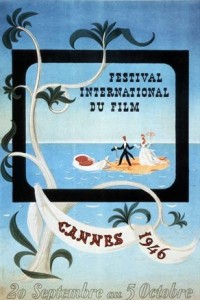
The 1st annual Cannes Film Festival was held from 20 September to 5 October 1946. Twenty-one countries presented their films at the "First Cannes International Film Festival", which took place at the former Casino of Cannes. Only one year after the end of World War II, most of the films were about the war. There arose several technical issues, such as the tarpauline cover blowing away in a storm on the day before the winners were to be announced, the reels of Alfred Hitchcock’s Notorious shown in reverse order, and Miguel M. Delgado’s The Three Musketeers projected upside-down.
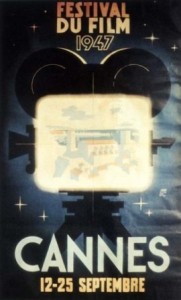
The 2nd Cannes Film Festival was held from 12 to 25 September 1947. The new building that was meant to host the festival, the Palais du Festival, was still not ready, and the festival was held amid many technical and financial problems. In 1947, the entire jury of the Festival were French. Six awards were given to films of different categories.

The 3rd Cannes Film Festival was held from 2 to 17 September 1949. The previous year, no festival had been held because of financial problems.

The 10th Cannes Film Festival was held from 2 to 17 May 1957.
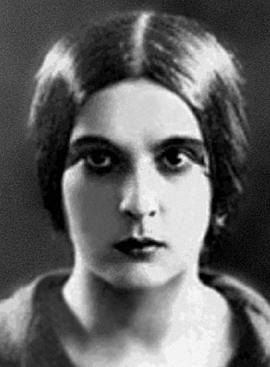
Yuliya Ippolitovna Solntseva was a Soviet actress and film director. As an actress, she is known for starring in the silent sci-fi classic Aelita (1924). She is the first female winner of the Best Director Award at Cannes film festival in the 20th century and the first woman to win a directing prize at any of the major European film festivals, for the film Chronicle of Flaming Years (1961), a war drama about Soviet resistance to Nazi occupation in 1941.
Pascale Ferran is a French film director and screenwriter. In 2007, her film Lady Chatterley won five César Awards including Best Film, Best Cinematography and Best Adaptation. Her 2014 film Bird People was selected to compete in the Un Certain Regard section at the 2014 Cannes Film Festival. Ferran also wrote the screenplay for The Red Turtle, an animated film by Michael Dudok de Wit, that competed in the Hawaii International Film Festival on 12 November 2016.
Georges Lourau (1898–1974) was a French film producer active from the 1930s to the 1960s. During the 1930s he was the director of Tobis Filmsonor, the French subsidiary of Germany company Tobis Film based at Epinay Studios in Paris. In the postwar era he was associated with the distribution outfit Cinédis, producing four films directed by Henri-Georges Clouzot. He was also a president of Unifrance. He was a member of the jury at the 1937 Venice Film Festival and the 1967 Cannes Film Festival.














